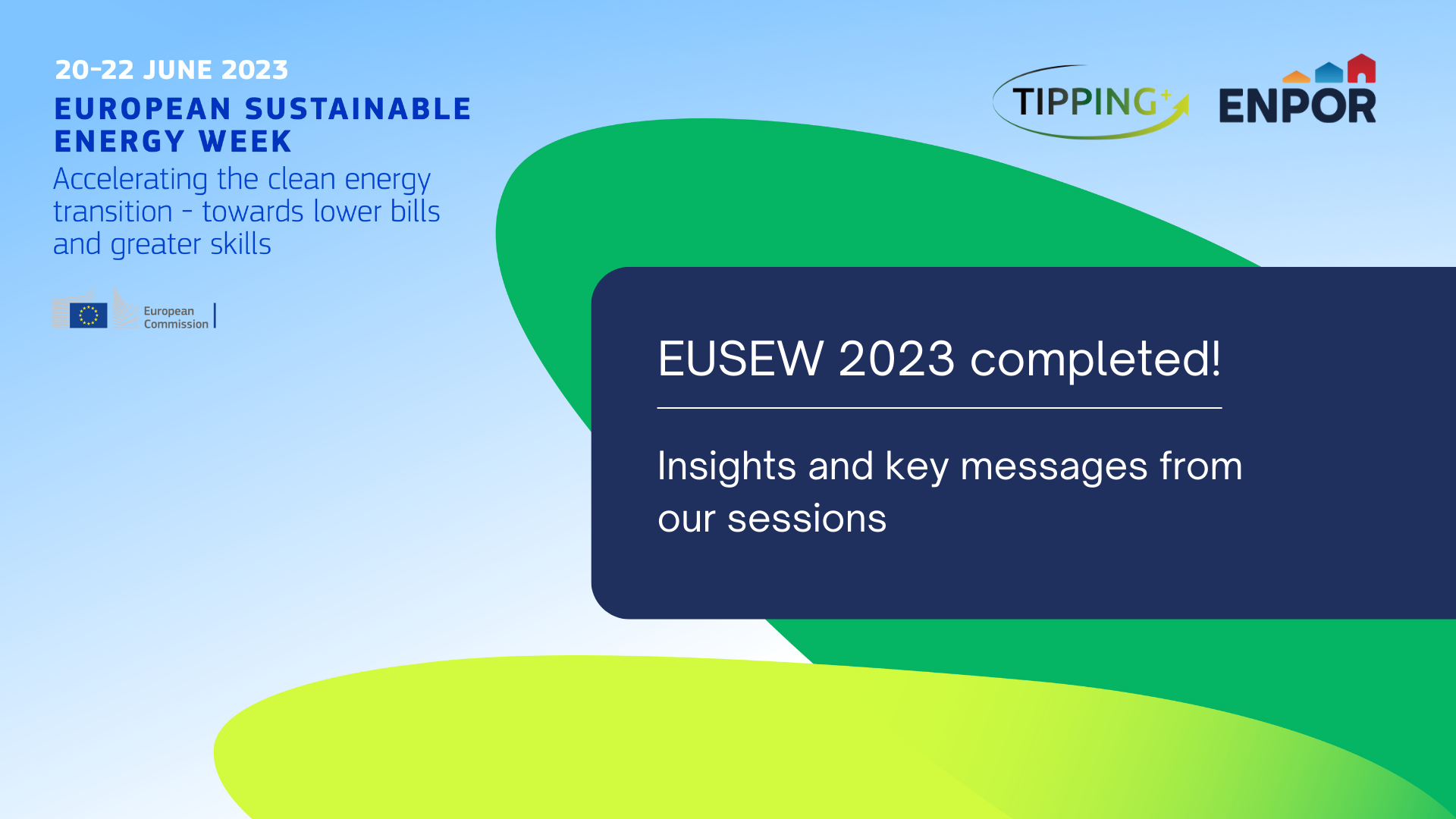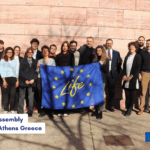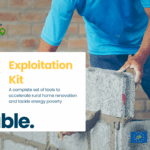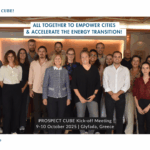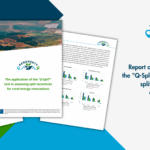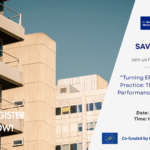The European Sustainable Energy Week (EUSEW) took place in a hybrid format on 20-22 June 2023. The EUSEW is the biggest European annual conference dedicated to renewables and energy efficiency. Researchers from the Technoeconomics of Energy Systems laboratory (TEESlab) participated in the event both in person and online and contributed to two different sessions.
- Tackling energy poverty through national building renovation plans.
On the 21st of June, the ENPOR project organised a policy session, moderated by Professor Dr. Alexandros Flamos (TEESlab), to highlight existing tools and best practices that could reduce energy poverty in the Private Rented Sector and support the design of national building renovation plans. The keynote speaker of the session, Stefan Moser (DG-ENER), kicked off the presentations and provided insights on the European Commission’s recommendations for the alleviation of energy poverty. Marie Rousselot (ENERDATA) followed by presenting monitoring energy poverty supporting tools to design national renovation strategies. Marie provided a comparison of national indicators to monitor energy poverty following the findings of the ODYSSEE-MURE project.
Next, Dimitris Papantonis (TEESlab) showcased monitoring energy poverty supporting tools to design national renovation strategies developed within the ENPOR project. In particular, Dimitris presented the Energy Poverty Dashboard, which supports stakeholders and policymakers to identify energy poverty in the Private Rented Sector across Europe and the “Split Incentives quantification” tool, which identifies the share of the triggered benefits from the implementation of energy efficiency interventions between landlords and tenants. Lastly, Christos Tourkolias (CRES) and Annika Urbas (TREA) focused on best practices for energy poverty inclusive renovation strategies at the national level, presenting the case of Greece and Estonia, respectively.
After the presentations, a fruitful discussion took place, as the audience had the chance to ask the speakers several questions about the phenomenon of energy poverty and ways to address it.
In case you missed the session, you can watch the recording here!
- Accelerating just energy transition(s) in coal and carbon-intensive regions
On the next day, the TIPPING+, Justem, ENTRANCES and CINTRAN projects hosted an online event, moderated by Diana Süsser, aiming to discuss positive social tipping points and necessary policy interventions to accelerate just transitions. Ricardo Garcia Mira (ENTRANCES) took the floor and presented social aspects and gender issues as derived from examining 13 case studies in order to make the transition just and transparent. Moving on, Carsten Rothballer (CINTRAN) explained the results from over 400 examples of different actions taken by governments, business and community groups to identify drivers of change in coping strategies.
Up next, Serafeim Michas (TIPPING+) showcased the key results of the Greek Case Study on Megalopolis that highlight the energy transition options of the regions towards a new sustainable energy future. The presentation analysed the risk of Megalopolis entering a new natural gas lock-in, and the benefits of electrification combined with renewable energy and storage for the citizens and the green rebranding of the region. Lastly, Balbina Gluza-Czyczerska (Just Transition Platform) shared insights about the Just Transition Platform, the EU’s key tool to help Member States and regions unlock the support available through the Just Transition Mechanism, ensuring a fair and ‘just’ transition that leaves no person or region behind. The discussions that followed mainly focused on the importance of addressing different aspects such as employment, migration, gender and youth to create transformative capacities in the regions. Lastly, another important topic raised was the inclusion of civil society and affected citizens of these regions in the process of designing the just transition plans.
In case you missed the session, you can watch the recording here!

